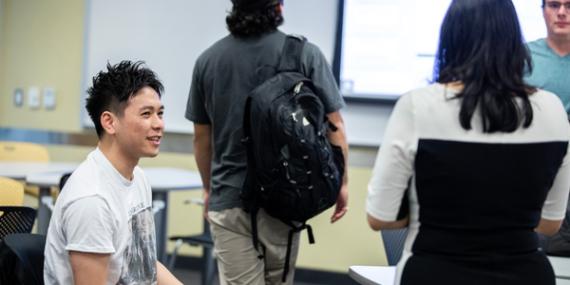Georgia Tech’s STEM-certified Ph.D. in Economics prepares you to tackle today’s most pressing issues in renewable energy, climate change, healthcare, and inequality.
Our faculty and students analyze how forest expansion impacts agriculture, rideshare services affect public transportation, and solar power influences energy consumption. We examine the effects of air pollution on education, economic integration on trade, and major policy changes on healthcare, education, and the economy.
Through rigorous research and data analysis, we deliver insights that help businesses, policymakers, government agencies, and nonprofits drive meaningful change.
"Imagine tackling big issues like poverty and climate change with the know-how to make a difference. You’ll be ready to ride the waves of rapid global changes and think like a true visionary, combining psychology, sociology, and politics into one awesome toolkit. Plus, this knowledge unlocks tons of exciting career paths and gives you the power to champion change."
— Marcie Xi Mao, Ph.D. Economics, 2020

Four Core Research Fields

Environmental Economics

Health Economics

Development Economics

International Trade
stats
Blurb / Gallery Set
STEM-certified
degree program
Fully funded
offers unless otherwise funded by external sources
Top 10
Public University by U.S. News and World Report
#1
Best Value Public College by the Princeton Review
Data shows that Ivan Allen College graduates out-earn liberal arts grads from peer institutions in Georgia.
Why? Combining strong communication, ethics, and analytical skills with a tech-forward education gives you a future-proof edge in any field.
On our 400-acre campus in the middle of Atlanta, you’ll be surrounded by not only expert economists but colleagues pushing boundaries in engineering, computing, artificial intelligence, data science, renewable energy, and other emerging technological fields.
Our graduates leave the program with in-demand skills in econometrics, causal inference, and applied microeconomics and go on to a wide range of careers in academia, government agencies, and private organizations. See a list of our Ph.D. placements here.
Take the next step in your career and apply for your Ph.D. in Economics!
The priority admissions deadline for the Ph.D. in Economics program is Jan. 1, and international students are encouraged to apply one month early. Apply via the Graduate Education website, or visit our Ph.D. Program of Study, FAQ, and Graduate Admissions pages for more information.



